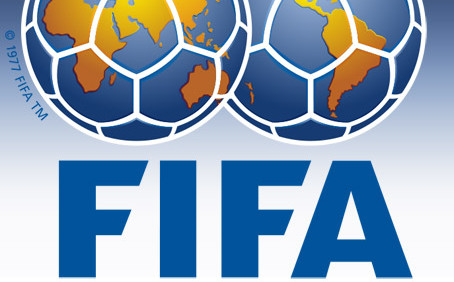3 November 2015, Washington, D.C. – NGOs today submitted evidence to the FIFA Electoral, Ethics and Reform Committee’s challenging the candidacy of Sheikh Salman bin Ebrahim Al Khalifa to the presidency of the world football organization. Americans for Democracy & Human Rights in Bahrain (ADHRB) and the Bahrain Institute for Rights and Democracy (BIRD) contend that Sheikh Salman should be disqualified for his complicity in rights abuses in Bahrain.
Sheikh Salman’s candidacy courted controversy after it emerged that, as president of the Bahrain Football Association (BFA) in 2011, he had chaired a committee charged with identifying athletes and clubs implicated in anti-government Arab Spring protests. Police arrested over 150 athletes, club staff and sports personalities in April and May 2011.
The complaint, submitted to FIFA Electoral Committee Chairman Dominico Scala and to Ethics Committee Chairmen Burbly Cornel and Eckert Hans-Joachim, states that “Sheikh Salman is a member of the Bahrain Royal Family, and the abuse of his position has been for personal political gain,” a breach of article 19(2) of the FIFA Code of Ethics.
With the use of official Bahraini government sources, the complaint highlights Sheikh Salman’s involvement. Sheikh Salman has called claims of his involvement “nasty lies” following years of denial of involvement.
Sayed Ahmed Alwadaei, Director of Advocacy, BIRD commented, “The nasty lie is Sheikh Salman’s denial. The fact is Bahraini footballers were abducted, arrested and tortured when Sheikh Salman had the responsibility and authority to help them. Instead he betrayed them.”
On 3 April 2011, Prince Nasser bin Hamad, a son of the King of Bahrain, appeared on state-run channel Bahrain TV and threatened athletes who protested, saying that it is “judgement day” for them. On 4 April, two players, star striker Ala’a Hubail and Sayed Mohammad Adnan, both Bahrain national football team players, called into the same show to defend their appearances at protests. The show’s presenters and guests called them traitors. The following day, they were arrested. Ala’a Hubail suffered torture, and on his release fled to Oman.
On 7 April 2011, the Ministry of Information-run Bahrain News Agency publicly threatened that the BFA would be investigating all footballers, staff and clubs associated with the protests.
On 11 April 2011, the Bahrain News Agency announced that Prince Nasser, son of Bahrain’s King Hamad and head of the country’s Olympic Committee, had formed a committee of inquiry to investigate sports personalities involved in protests under the chairmanship of Sheikh Salman. The article states that the committee’s first meeting had taken place the day prior.
A week later, on 20 April 2011, the state-run Bahrain News Agency reported that the BFA issued suspensions, relegations and $20,000 fines to six clubs. Two of the clubs were relegated; the other four were not only because they were already in the bottom division. These clubs had previously written a joint-letter to Sheikh Salman asking that they be allowed to suspend activities due to the heightened security situation, for fear of the safety of their players and staff.
Sheikh Salman’s spokesperson recently stated, “While it was proposed that Sheikh Salman lead a fact-finding committee in relation to the events of 2011, that committee was never formally established and never conducted any business whatsoever.” All the evidence, including the Bahrain Ministry of Information’s own reporting, strongly contradict that statement.
Husain Abdulla, Executive Director, ADHRB stated, “In 2011, Prince Nasser heralded ‘judgement day’ for Bahrain’s athletes, and they were then arrested and tortured. Today FIFA faces its own test with their integrity and reputation on the line. Will they entrench themselves in scandal and abuse with Sheikh Salman?”
Additional Comments (Not Party to Complaint):
Nick McGeehan, Bahrain, Qatar and UAE researcher at Human Rights Watch, said, “We know that some of Bahrain’s top footballers were harassed, defamed, arrested and mistreated during Sheikh Salman’s time at the head of Bahrain’s national football association and that they never played for the national team again. It’s difficult to see how a man who either couldn’t or wouldn’t protect his national team’s finest players from beatings can safeguard the interests of the game worldwide.”





